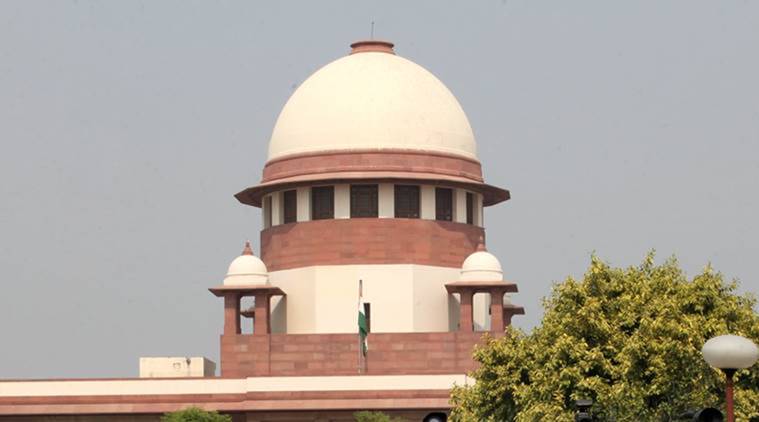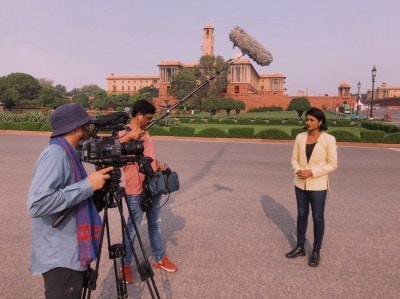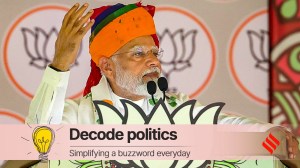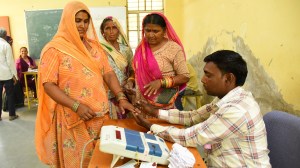- India
- International
SC trashes Govt’s plea to recall verdict on probe into fake encounters in Manipur
In 2016, a bench led by Justice Madan B Lokur had decided to to probe 1,528 cases of alleged fake encounters by security forces and Manipur Police.
 Raising questions on deployment of security forces in Manipur under the AFSPA since 1958, the court had urged all the stakeholders “to find a lasting and peaceful solution to the festering problem”.
Raising questions on deployment of security forces in Manipur under the AFSPA since 1958, the court had urged all the stakeholders “to find a lasting and peaceful solution to the festering problem”.
In a setback to the Central government, the Supreme Court has dismissed its plea to recall 2016 verdict on conducting a probe into 1,528 cases of alleged fake encounters in Manipur in the last 20 years. On Wednesday, a five-judge bench led by Chief Justice of India J S Khehar rejected the curative petition moved by the government, which had complained that the court judgment has “hampered the Indian Army’s ability to respond to insurgent and terrorist situations”.
“We have gone through the curative petition and the relevant documents. In our opinion, no case is made out within the parameters indicated in the decision of this Court in Rupa Ashok Hurra’s case. Hence, the curative petition is dismissed,” said the bench, also comprising Justices Dipak Misra, J Chelameswar, Madan B Lokur and Uday U Lalit.
The bench also junked the government’s plea to hear the matter in open court instead of deciding it in chamber – the usual manner in which review and curative petitions are decided. Attorney General Mukul Rohatgi had a fortnight ago mentioned the matter before the CJI and sought a hearing in open court of the curative petition filed by the government.
Pressing for urgency, the AG had maintained that the fetters imposed by the verdict was affecting anti-terror and anti-insurgency operations by the Army, which would bring the morale of the forces down if they were subjected to investigation by local police after every incident.
In 2016, a bench led by Justice Madan B Lokur had decided to to probe 1,528 cases of alleged fake encounters by security forces and Manipur Police, noting “democracy would be in grave danger” if armed forces were permitted to kill citizens on a mere allegation or suspicion that they were enemies of the state. It had added that “smoking guns” must come under judicial scrutiny to examine if excessive or retaliatory force was used by security forces.

Underlining that “no absolute immunity” would be given to armed forces personnel if any death was found to be “unjustified”, the bench had held that “the use of excessive force or retaliatory force by Manipur Police or the armed forces of the Union is not permissible” and all such instances must be thoroughly investigated.
Raising questions on deployment of security forces in Manipur under the AFSPA since 1958, the court had urged all the stakeholders “to find a lasting and peaceful solution to the festering problem”. The bench had rejected the central government’s submission that there is a war-like situation in the state and that an inquiry may demoralise the security forces, in turn helping the militants, terrorists and insurgents.
Seeking recall of this judgment, the government has now claimed that the immediate effect of the impugned judgment is that it has hampered the Army’s ability to respond to insurgent and terrorist situations attributable to the actors within the boundaries of the country.
The plea said that “action taken by Army during operations cannot be put to judicial scrutiny” while adding that “to apply principle of judicial review over action which has taken place in the last two or three decades is detrimental to the morale of the Armed Forces”.
“The findings and conclusions set out in the judgment have far reaching ramifications on the security and integrity of the territory of India especially in parts of India that are plagued with constant militant and insurgency activities. The Indian Army has to, in given circumstances, take quick decisions which cannot be dissected later on like an appeal against the ordinary murder appeal,” stated the petition.
The government said that “human rights and respect for the life of a human being are kept at the highest pedestal” as reflected by the data showing only 10 per cent of insurgents died in the Army operations between 1990 and 2015.
The petition further stated: “The judicial review of military operations will have damaging consequences for operational effectiveness and may erode the fighting power. This in turn could have catastrophic consequences for sovereignty, independence and territorial integrity of the nation.”
Apr 23: Latest News
- 01
- 02
- 03
- 04
- 05






































